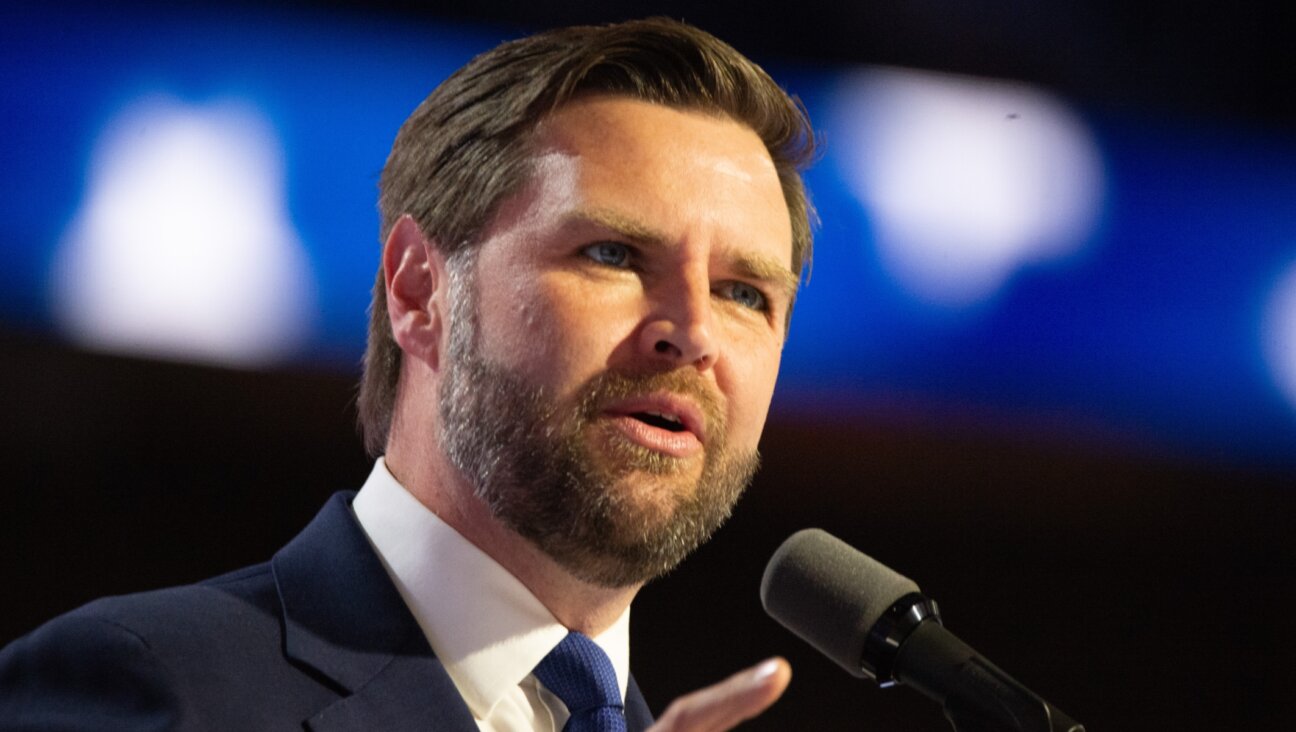Estonian university cuts ties with Israeli institution, drawing government rebuke
The rector of the Estonian Academy of Arts said the move was in line with “most art universities in Europe”

The Estonian Academy of Arts, known as EKA, announced that it was cutting ties with Israeli universities in December 2024. (Wikipedia)
(JTA) — An Estonian university has cut ties with an Israeli university, setting off a chain of rebukes from the government, and pressure from its board.
The rector of the Estonian Academy of Arts, or EKA, now says the decision to cut ties will be reviewed. The rector, Mart Kalm, also said critics of the decision had misinterpreted a “technical matter” for an ideological one.
“I should apologize for my imprecise wording, which has upset people, taken on a life of its own, and allowed misunderstandings to arise,” Kalm said on an Estonian news show.
The firestorm erupted after EKA canceled a design anthropology workshop with a visiting Israeli professor last week. The workshop with Jonathan Ventura, a professor at Shenkar College in Tel Aviv, was slated for February.
EKA also said it now has no partnerships with Israeli or Palestinian universities, citing “difficult international and in-house sentiments” surrounding Israel’s war in Gaza. In a statement on Tuesday, the university said that it “sympathises with all those who are suffering in the current war.”
The statement added, “EKA wants to provide a safe study, work and creative environment for its members, students and staff, regardless of generation, religion or worldview.”
Estonian Prime Minister Kristen Michal rebuffed the move in a press conference, saying, “I believe the academy should reconsider this decision.”
He was joined by Minister of Foreign Affairs Margus Tsahkna, who said EKA took “a step in the wrong direction” considering Estonia’s friendly relations with Israel. (When the country recently supported a United Nations resolution calling on Israel to end its occupation of Palestinian territories, the Estonia–Israel Parliamentary Friendship Group of the Riigikogu, or parliament, called the move a regrettable departure from the norm.)
Tsahkna also encouraged the university’s council, akin to a university board in the United States, to intervene in the decision. The council did just that after a meeting on Tuesday.
“The council advised the rector, together with his colleagues, to look at this issue, which has now become a much bigger issue, once again, and consider all the pros and cons,” said EKA Council Chair Maria Mägi-Rohtmets.
Before signaling that he would review the decision, Kalm told Estonian media that EKA’s decision aligned with “most art universities in Europe.” A wave of European schools severed ties with Israeli institutions or agreed to divest from Israel-linked companies earlier this year, following student protests against Israel’s actions in Gaza in its war against Hamas.
Kalm also said he had corresponded with Israeli schools that “expressed their understanding” based on international sentiments opposing the war in Gaza.
Ventura, the Israeli professor whose workshop was canceled, told media that he wanted to avoid a flare of tensions, which he said he had already experienced at universities in Switzerland.
Some members of Estonia’s Jewish community have joined in the criticism of EKA. The country is home to about 2,000 Jews.
Alla Jakobson, chair of Estonia’s Jewish communal body, said it was “unacceptable” to end relations with Israeli scholars and students for “political reasons” and accused the university of contributing to an environment that fostered antisemitism.
“This decision sends out a worrying signal that undermines academic and cultural ties between Estonia and Israel,” the communal body said in a statement. “It is also contrary to the principles of academic freedom, international exchange of knowledge and cultural dialogue, and to the commitments made by the Estonian state when signing the IHRA definition of antisemitism in 2007.”
A message from our Publisher & CEO Rachel Fishman Feddersen

I hope you appreciated this article. Before you go, I’d like to ask you to please support the Forward’s award-winning, nonprofit journalism so that we can be prepared for whatever news 2025 brings.
At a time when other newsrooms are closing or cutting back, the Forward has removed its paywall and invested additional resources to report on the ground from Israel and around the U.S. on the impact of the war, rising antisemitism and polarized discourse.
Readers like you make it all possible. Support our work by becoming a Forward Member and connect with our journalism and your community.
— Rachel Fishman Feddersen, Publisher and CEO





























